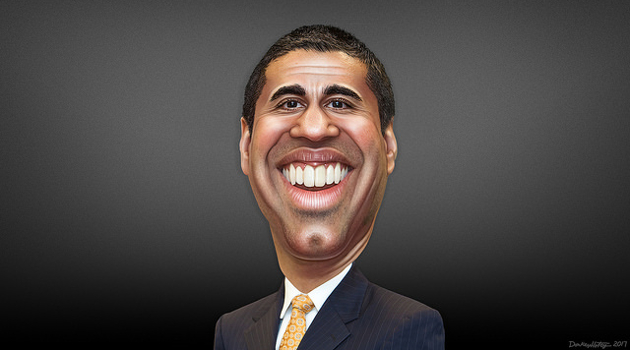Originally published by The American Conservative on May 12, 2017.
“Republicans Attack Internet Privacy,” blared the New York Times. “Congress Just Killed Your Internet Privacy Protections,” warned CNN. Based on the narrative being spun by Democrats and the media, you might be excused for thinking that Republicans all but put an end to privacy on the internet when they used the Congressional Review Act to repeal the Obama-era FCC’s so-called broadband privacy rules. That narrative has no basis in reality, but it’s one that will likely be repeated when it comes to related issues and could stymie Republican efforts to rein in government overreach.
On closer scrutiny, the incendiary headlines are easily proven false. The rules in question had never even taken effect, so absolutely nothing changed for internet users. What Republicans did change was the direction of the FCC, which instituted the broadband privacy rules through a party-line vote as part of a larger power grab over the internet.
As far as the privacy rules themselves, they were a solution in search of a problem. The vast majority of internet activity these days is encrypted and thus shielded even from your service provider. No evidence was given to support the FCC’s actions. No complaints about privacy violations were cited, and no investigation into broadband providers was conducted. Basically, the FCC grabbed jurisdiction away from the Federal Trade Commission not because the latter was doing a bad job, but because it wasn’t interventionist enough for the more partisan-minded FCC.
While not solving any real problems, by micromanaging how broadband providers could collect and use information, as well as how they informed consumers about the use of their data, the rules did manage to create new challenges. Not only do such requirements add new costs that inevitably get passed on to customers, but the rules made it so that there was one standard for internet-service providers and another for mass information-gathering platforms like Google and Facebook—both of which had close ties to the Obama administration and didn’t want broadband providers challenging their dominance of the online advertising market. In other words, the rules reeked of political favoritism.
After Republicans repealed the rules, some activists responded with a stunt they thought would really catch the public’s attention. They set up a GoFundMe page to raise money in order to buy the browsing histories of Republican Congressmen from their ISPs, which they would then expose to the world. Except it doesn’t work that way. ISPs don’t sell personalized, identifiable information about their users and never have. Doing so would get them punished by the FTC.
All the stunt accomplished was to show that the rules were never needed in the first place. Contrary to claims that users have no privacy protections, actual abuses can still be investigated and punished. ISPs are simply no longer blocked from competing on equal footing with other companies that are free to use the observed habits of users to send them targeted advertising.
So why does all this matter now?
While the broadband privacy rules have been repealed thanks to the work of Sen. Jeff Flake and Rep. Marsha Blackburn, more reforms are needed. In fact, the new FCC commissioner, Ajit Pai, wants to do something that regulators almost never do: reduce the power of his own agency.
Former Commissioner Tom Wheeler’s tenure was especially partisan. Repeatedly ignoring and refusing to engage with the Republican-appointed members of the commission, he and his fellow FCC Democrats reclassified broadband providers as public utilities under Title II of the 1934 Communication Act in order to pave the way for so-called “net neutrality” rules, which also threatened to smother online innovation. The move took regulation of broadband providers out of the hands of the more experienced and cautious FTC so that Wheeler could enact Obama’s radical vision.
There was never any justification for applying Depression-era legislation to modern internet-service providers. The result has been new fees and compliance costs, and less choice and higher prices for consumers. Thanks to the net-neutrality rules, the FCC was actually investigating companies for offering free data to customers who used preferred apps and websites. Thankfully, one of the first things that Chairman Pai did was to put an end to such actions.
Title II reclassification also gave the government a dangerous foothold into one of the last and most powerful channels for free speech in America. Overall, it represented a complete reversal from the light regulatory touch under which the internet blossomed. Commissioner Pai is right to want to return to the system that allowed the internet to thrive for decades with minimal government interference. He and Republican allies in Congress must now resist the hysterics that are sure to accompany their efforts.
———
Image credit: DonkeyHotey | CC BY 2.0.

